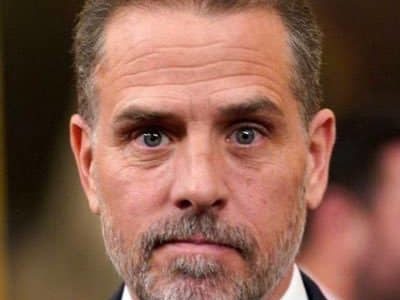On the sixth day of Hunter Biden’s trial, the jury began deliberations following the presentation of closing arguments. Prosecutors concluded their case by painting Hunter Biden as a habitual drug user between 2015 and 2019, a period that coincides with his alleged illegal gun possession. They emphasized that Hunter Biden was well aware of his addiction, having documented it extensively in his memoir. This, they argued, demonstrated that he knowingly lied on a federal form to purchase a firearm.
In contrast, Hunter Biden’s lead defense attorney, Abbe Lowell, argued that while Hunter Biden’s struggles with addiction were real, the prosecution had failed to prove beyond a reasonable doubt that he intentionally deceived authorities on the gun purchase form. “With this very high burden, it’s time to end this case,” Lowell asserted. Following the defense’s statements, U.S. District Judge Maryellen Noreika gave final instructions to the jury, who began their deliberations but did not reach a verdict by the end of the day. They are set to resume on Tuesday morning.
Emotional Moments and Courtroom Atmosphere
The trial saw emotional moments as Hunter Biden was surrounded by his close family members, including his wife, Melissa Cohen Biden, his uncle James Biden, and other supporters. At times, Biden was seen clasping his hands together on the table, intently observing the jury and the prosecutors. This familial support contrasted with the stark arguments presented in court.
During closing statements, Assistant Special Counsel Leo Wise highlighted the presence of Biden’s supporters, including prominent figures like First Lady Jill Biden and Biden’s half-sister, Ashley. However, Wise reminded jurors that this show of support was not evidence, emphasizing that the case should be decided solely on the facts. He argued that Hunter Biden’s actions in purchasing the gun, despite his addiction, were clear violations of the law, stating, “These same laws apply to the defendant just like they would to anybody else.”
Key Testimonies and Legal Strategies
. The defense’s closing argument, delivered by Abbe Lowell, focused on the idea of reasonable doubt, stressing that the government’s case relied on speculation rather than concrete evidence. He questioned the credibility of testimonies from witnesses like Zoe Kestan and Hallie Biden, suggesting their accounts could be influenced by government promises of immunity. Lowell criticized the prosecution’s tactics, particularly their cross-examination of Biden’s daughter, Naomi, calling it “extraordinarily cruel.”
Lowell also pointed to the testimony of the gun salesman, who had stated he was vigilant in refusing sales to customers who showed signs of drug use. This, Lowell argued, supported the defense’s claim that there was no clear evidence Hunter Biden had lied on the gun purchase form. Opting not to testify himself, Hunter Biden avoided potentially damaging cross-examination, a strategic decision that underscored the defense’s focus on creating reasonable doubt.
As the jury continues to deliberate, the case hinges on whether the prosecution has met the high burden of proving Biden knowingly committed the alleged offenses. The outcome remains uncertain, with both sides presenting compelling arguments that the jurors must now weigh carefully.
FBI Uncovers New Evidence in Hunter Biden Gun Purchase Case
FBI Special Agent Erika Jensen presented pivotal new evidence in the ongoing investigation into Hunter Biden’s gun purchase. Testifying in court, Jensen disclosed previously unseen messages and location data from Biden’s cellphone. These records placed him at or near a 7-Eleven on two dates coinciding with the contentious period of the gun purchase. The defense had earlier highlighted this period as a significant gap in the prosecution’s case, suggesting it lacked critical evidence.
One key message revealed Biden texting Hallie Biden, his sister-in-law and former romantic partner, about waiting at a 7-Eleven for a “dealer named ‘Mookie'” the day after purchasing the gun. The defense suggested this message indicated Hunter Biden was avoiding Hallie at the time, rather than engaging in suspicious activities. This detail added complexity to the narrative, challenging the prosecution’s timeline and intent assertions.
Prosecution Counters Defense with New Contradictions
Prosecutors, over the weekend, confronted Hunter Biden with fresh inconsistencies in his defense. They unveiled new messages and location data, contradicting Naomi Biden’s earlier testimony about her father’s whereabouts in October 2018. In a late Sunday email to the defense, prosecutors shared 42 text messages from Hunter Biden and others, alongside video and other data, presenting evidence that contradicted Naomi Biden’s account of when her father arrived in New York to meet her.
Among these new revelations, several messages indicated that in the days following the gun purchase, Hunter Biden was coordinating to meet someone named “Junior” at a 7-Eleven. In one instance, Junior asked Hunter Biden, “Do you want the same?” This interaction raised questions about the nature of their meetings and the implications for Biden’s activities during this period.
Jurors meticulously documented these revelations, highlighting their potential impact on the case. However, attorney Lowell argued for a more innocent interpretation of the messages. He suggested that when Hunter Biden texted Hallie Biden “are you up” early in the morning while waiting at the 7-Eleven, it could simply reflect personal reasons rather than illicit activities. This argument aims to cast doubt on the prosecution’s allegations and provide a plausible alternative explanation for Biden’s behavior.














